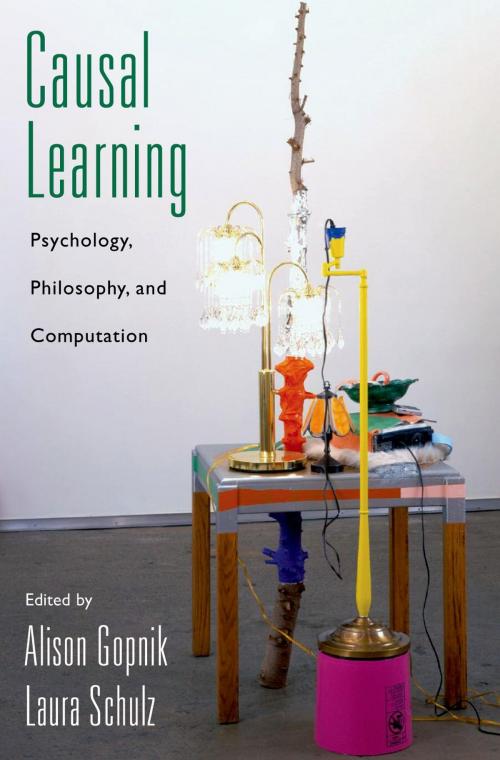Causal Learning
Psychology, Philosophy, and Computation
Nonfiction, Health & Well Being, Psychology, Cognitive Psychology| Author: | ISBN: | 9780190208264 | |
| Publisher: | Oxford University Press | Publication: | March 22, 2007 |
| Imprint: | Oxford University Press | Language: | English |
| Author: | |
| ISBN: | 9780190208264 |
| Publisher: | Oxford University Press |
| Publication: | March 22, 2007 |
| Imprint: | Oxford University Press |
| Language: | English |
Understanding causal structure is a central task of human cognition. Causal learning underpins the development of our concepts and categories, our intuitive theories, and our capacities for planning, imagination and inference. During the last few years, there has been an interdisciplinary revolution in our understanding of learning and reasoning: Researchers in philosophy, psychology, and computation have discovered new mechanisms for learning the causal structure of the world. This new work provides a rigorous, formal basis for theory theories of concepts and cognitive development, and moreover, the causal learning mechanisms it has uncovered go dramatically beyond the traditional mechanisms of both nativist theories, such as modularity theories, and empiricist ones, such as association or connectionism.
Understanding causal structure is a central task of human cognition. Causal learning underpins the development of our concepts and categories, our intuitive theories, and our capacities for planning, imagination and inference. During the last few years, there has been an interdisciplinary revolution in our understanding of learning and reasoning: Researchers in philosophy, psychology, and computation have discovered new mechanisms for learning the causal structure of the world. This new work provides a rigorous, formal basis for theory theories of concepts and cognitive development, and moreover, the causal learning mechanisms it has uncovered go dramatically beyond the traditional mechanisms of both nativist theories, such as modularity theories, and empiricist ones, such as association or connectionism.















